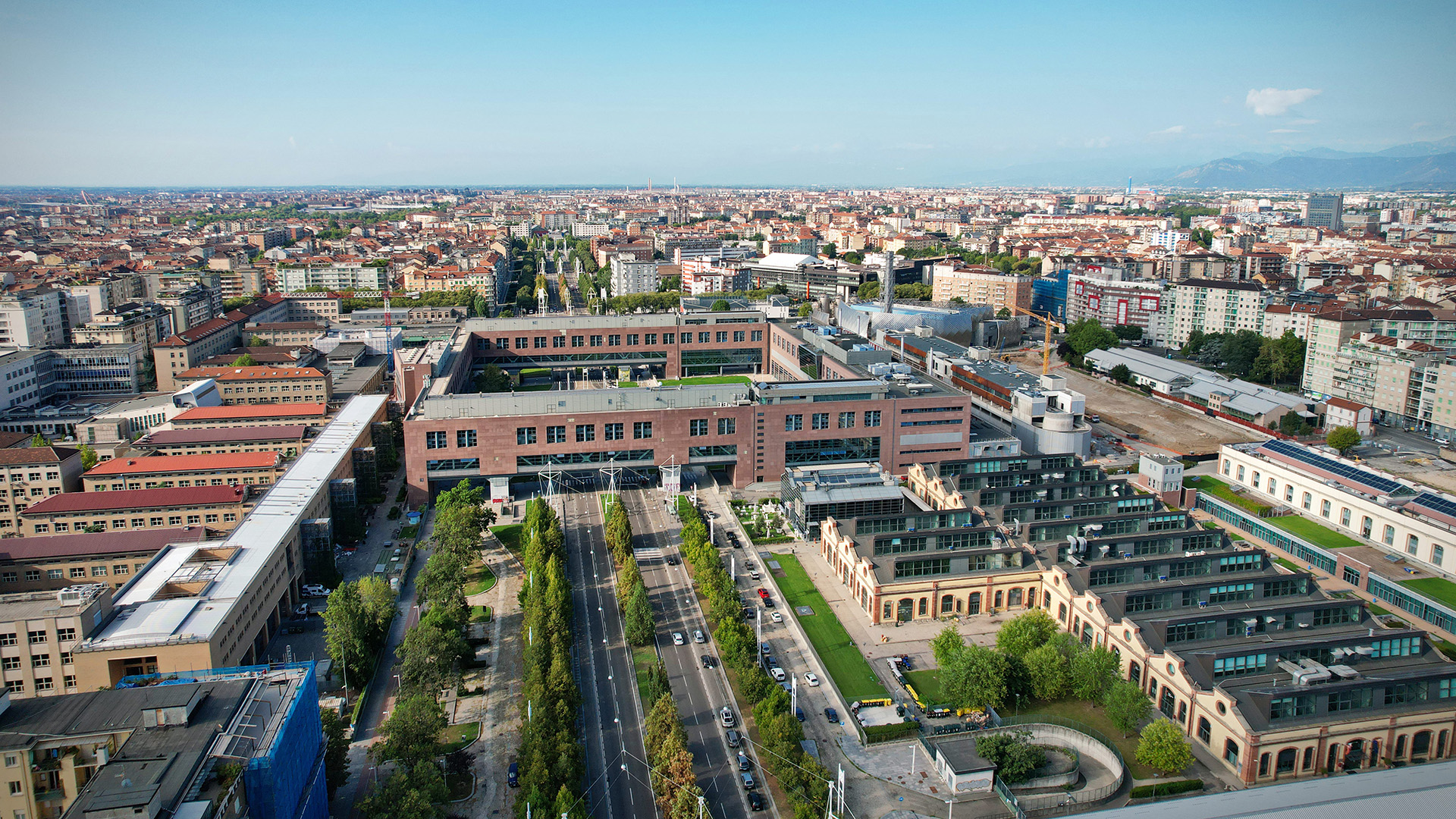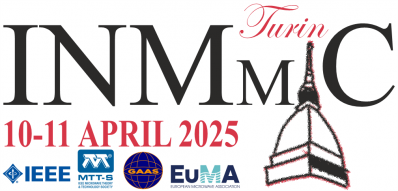Conference Location
Centro Congressi Unione Industriale
Sala Piemonte (oral sessions)
Sala Piramide, Sala Torino (poster sessions and exhibition)
Public entrance:
Via Vincenzo Vela, 17, 10128 Torino TO
Entrance for the gala dinner:
Via Vincenzo Vela, 15, 10128 Torino TO
Mail: Vittorio Camarchia
Tel: +390110904219
Getting to Torino
Reaching Torino: Your Travel Options
By Air:
Torino is served by Turin-Caselle Airport (TRN), located about 16 km (10 miles) northwest of the city center. The airport connects to major European cities through direct flights. From the airport, you can reach the city center in about:
- 30 minutes by taxi or private transfer.
- 40 minutes by public transport, using the SADEM shuttle bus, which operates regularly and stops at key locations, including Torino Porta Susa and Torino Porta Nuova train stations or by train directly at the Airport
For intercontinental travelers, connecting flights are available via major European hubs like Rome, Milan, Paris, Frankfurt, and Amsterdam.
By Train:
Torino is a key hub in Italy’s high-speed train network, making it easily accessible from major cities:
- From Milan: High-speed trains (Frecciarossa or Italo) take approximately 1 hour.
- From Rome: High-speed trains take about 4 hours.
- From Paris: The TGV train offers a direct connection, taking approximately 5.5 hours.
Torino has two main train stations:
- Torino Porta Nuova, located in the city center, is the primary station for most national and international routes.
- Torino Porta Susa, a modern station that serves high-speed and regional trains, offering easy access to the northern parts of the city.
By Car:
Torino is well-connected by Italy’s motorway network, making it an accessible destination for those traveling by car:
- From Milan: Take the A4 motorway, a journey of approximately 1.5 to 2 hours.
- From Genoa: Take the A26 and A21 motorways, covering the distance in about 2 hours.
- From France: Use the A32 motorway via the Fréjus Tunnel, providing a direct link between Torino and the French Alps.
Parking is available in several areas of the city, including underground parking facilities in the city center. Be mindful of limited traffic zones (ZTL) in the heart of Torino during certain hours, and plan accordingly.
About Politecnico di Torino

Politecnico di Torino is one of Italy’s leading technical universities, renowned for excellence in engineering, architecture, and design. Established in 1859, it has a long tradition of innovation, offering cutting-edge education and research facilities. With an emphasis on collaboration with industry, the Politecnico plays a key role in shaping technology and innovation both nationally and internationally.
Department of Electronics and Telecommunications
The Department of Electronics and Telecommunications (DET) at Politecnico di Torino is a center of excellence in advanced electronics, communication systems, and photonics. The department is actively engaged in groundbreaking research and offers specialized programs aimed at training professionals for high-tech industries.
High-Frequency Electronics
Within the DET, high-frequency electronics is a standout field, encompassing research and development in radiofrequency (RF), microwave, and millimeter-wave systems. Areas of expertise include high-efficiency power amplifiers, advanced antenna systems, integrated circuits for wireless communications, and radar technologies. The department collaborates with global industry leaders and participates in international projects, ensuring a strong connection between research and real-world applications.
This commitment to innovation and excellence makes the DET a significant contributor to advancements in high-frequency technologies and their applications in communications, aerospace, and defense.
About Torino

Artistic cities, rolling hills, tranquil lakes, the grandeur of the Alps, and centuries-old traditions—Torino and its surrounding region offer experiences as diverse as they are unforgettable. This enchanting area serves as the crown of Italy’s first capital, where history, culture, and natural beauty converge.
Torino, situated along the Po River and framed by the majestic western Alpine arc, was famously described by Le Corbusier as “the city with the most beautiful natural setting.” Its charm lies not only in its landscape but also in its rich cultural and historical heritage.
The city is home to the renowned Egyptian Museum, the most significant collection of ancient Egyptian artifacts outside Cairo, drawing visitors from around the globe. For film enthusiasts, the National Cinema Museum, housed in the iconic Mole Antonelliana, offers an immersive journey into the world of cinema, making it a must-visit landmark.
Torino also made history as the host of the 2006 Winter Olympics, a spectacular event that showcased the city’s modernity and its position as a gateway to world-class Alpine resorts.
Gastronomy enthusiasts will delight in Torino’s culinary excellence. Known as the birthplace of gianduja chocolate and vermouth, the city boasts a rich food scene, from elegant trattorias to vibrant markets like Porta Palazzo, one of Europe’s largest open-air markets. The surrounding Piedmont region is a treasure trove of gastronomic delights, offering dishes such as vitello tonnato, bagna càuda, and agnolotti, paired with celebrated wines like Barolo, Barbaresco, and Moscato d’Asti.
Whether you are captivated by art and history, seduced by exquisite cuisine and fine wines, or drawn to the allure of the Alps, Torino and its surrounding areas promise a unique and unforgettable experience.
